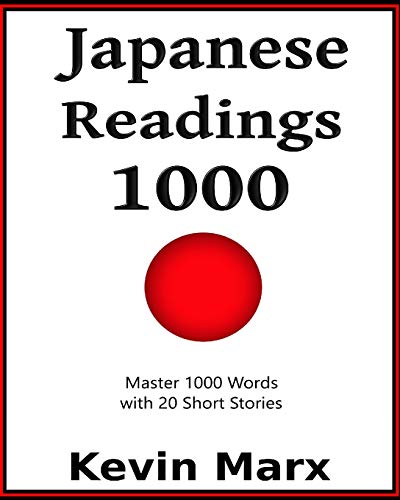Customer Services
Copyright © 2025 Desertcart Holdings Limited



Full description not available
A**S
Educative & Fun
I like this kind of books where you can have test your knowledge and learn more. Books like this always make me want to learn more because I don't have a feeling that I didn't learn anything till now.The concept of the book is also very practical. Every story is written in three ways: first time in hiragana and katakana, then with N5 and N4 kanji and the last version is all kanji, no matter the hardness.The author points out the importance of reading aloud those stories and I must admit that there is something about it. It is much easier when you read aloud some text in kana and then when you read the same text with kanji you remember the reading from previous time and connect in your mind kanji with reading.I like it a lot!
A**N
Thoughfully written
Author has figured out how to present material to make it easier for beginners to improve their Japanese reading comprehension. I am going to look for his other books on Japanese language learning now too. Thank you, Kevin Marx!
A**R
Great pathway for beginning to tackle Japanese readings
Has been an effective approach so far for building my reading skills as a beginner/intermediate; very content with this purchase as the book and method is just what I was aiming for
D**W
Useful collection of short stories which teach 1000 common Japanese words with some kanji
Very useful collection of short stories in Japanese.This book, with its companion book 'Japanese Readings 2000', uses stories to teach 2000 of the most common Japanese words.The stories are written three times each: the first time only in kana, the second time in kana with JLPT N5 and N4 kanji, and the third time in kana and kanji as it would normally be written in Japanese. This makes it easy to work at whatever level you are at with your Japanese. The author says he didn't include furigana because that gets in the way of learning and I have to agree. When there's furigana sometimes I will read it even when I know the kanji - it just makes you lazy. And there's no romaji to be seen anywhere in this book either.There's an English to Japanese glossary at the end of the book that's common to both books.The only things I didn't like about the book are that there's no kindle table of contents so to navigate between the sections you have to go back to the in book table of contents and click on the chapter you want. That gets a bit tedious.And I would have liked to see an English translation of the stories. The author points out that the grammar for these stories is in his other Japanese texts but trying to flick between two ebooks to find something fairly simple is not fun. An English translation would help to reinforce grammar principles and make the stories more accessible to all learners including those who don't own any of Mr Marx's other books.Those are minor points though and this book is so useful that it's still a five star book to me.
L**5
Good
Good
D**W
Useful collection of short stories which teach 1000 common Japanese words with some kanji
Very useful collection of short stories in Japanese.This book, with its companion book 'Japanese Readings 2000', uses stories to teach 2000 of the most common Japanese words.The stories are written three times each: the first time only in kana, the second time in kana with JLPT N5 and N4 kanji, and the third time in kana and kanji as it would normally be written in Japanese. This makes it easy to work at whatever level you are at with your Japanese. The author says he didn't include furigana because that gets in the way of learning and I have to agree. When there's furigana sometimes I will read it even when I know the kanji - it just makes you lazy. And there's no romaji to be seen anywhere in this book either.There's an English to Japanese glossary at the end of the book that's common to both books.The only things I didn't like about the book are that there's no kindle table of contents so to navigate between the sections you have to go back to the in book table of contents and click on the chapter you want. That gets a bit tedious.And I would have liked to see an English translation of the stories. The author points out that the grammar for these stories is in his other Japanese texts but trying to flick between two ebooks to find something fairly simple is not fun. An English translation would help to reinforce grammar principles and make the stories more accessible to all learners including those who don't own any of Mr Marx's other books.Those are minor points though and this book is so useful that it's still a five star book to me.
R**O
Vocabulary learning without crutches
The book is straight to the point in that it is completely immerses one in reading Japanese- no romaji crutches. All Nihon-go.This is necessary in becoming competent in the language. Too many books rely on romaji which is very distracting and counter productive. This one doesn't.
Trustpilot
1 week ago
3 weeks ago